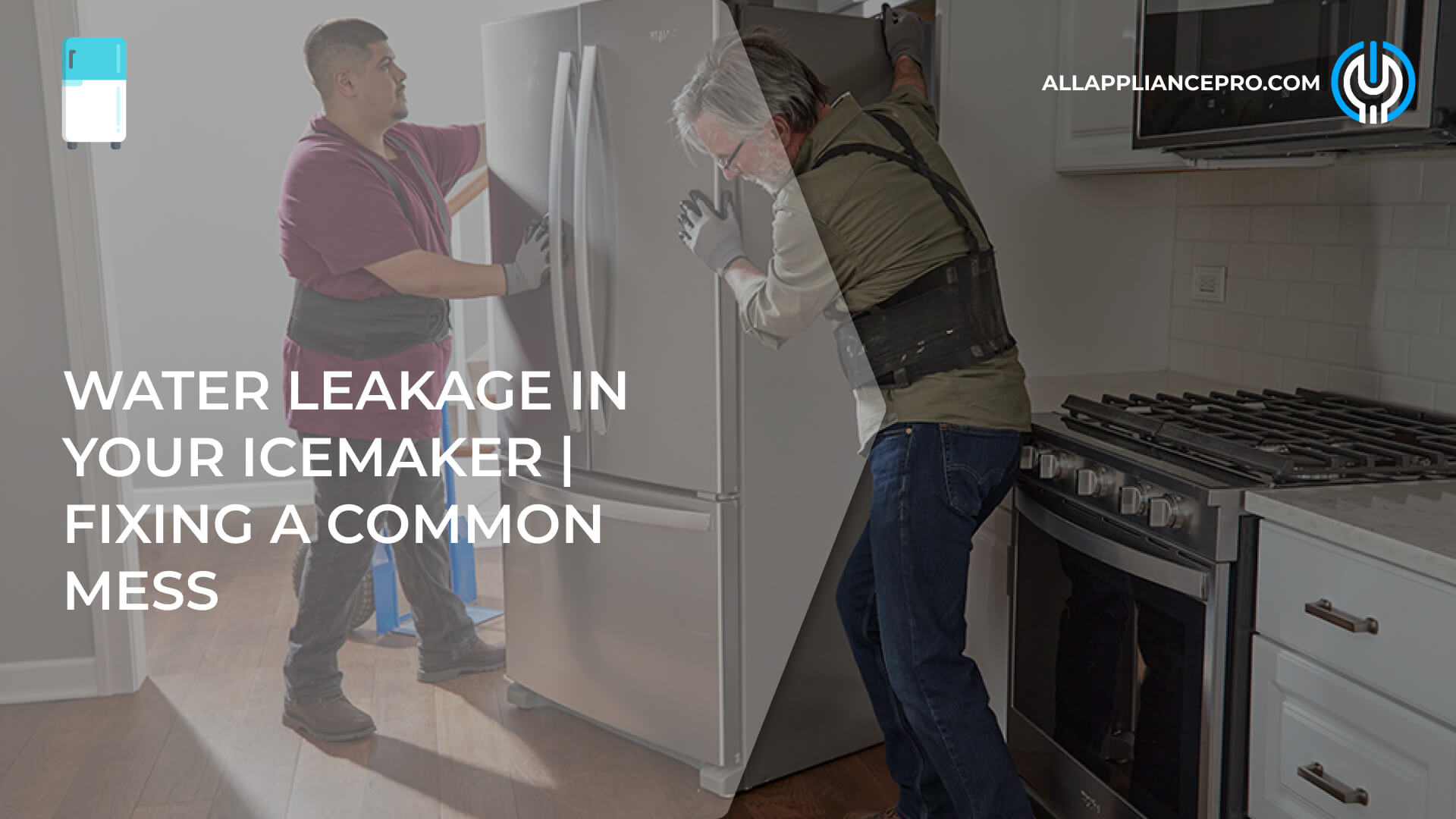Water Leakage in Your Icemaker/Refrigerator

Is your refrigerator turning into a mini swimming pool? Finding water inside your fridge can be a bothersome experience, especially when you have to clean up the mess repeatedly. If you suspect that the water is coming from your icemaker, don't worry; it's a common issue that many people encounter. In this article, we'll guide you through troubleshooting steps to identify the source of the problem and help you resolve it efficiently.
Check the Water Supply Line
The first thing you should inspect is the water supply line connected to your icemaker. Make sure it is securely attached and doesn't have any kinks or leaks. If you notice any issues, tighten the connections or replace the line if necessary. A faulty water supply line can lead to water leakage, so addressing this problem might resolve the issue.
Inspect the Icemaker Components
Examine the icemaker components to identify any potential causes of water leakage. Remove the ice bin and visually inspect it for cracks or damage that could allow water to escape. Additionally, check the water inlet valve, which controls the flow of water into the icemaker. If it's defective or worn out, it may cause leaks. Consider replacing the faulty parts to fix the problem.
Assess the Defrost Drain
Another possible culprit for water leakage in your refrigerator is a clogged or frozen defrost drain. Over time, debris or ice can accumulate in the drain and cause water to back up. Locate the defrost drain usually found at the back of your fridge and clean it using a pipe cleaner or warm water to remove any obstructions.
Inspect the Drain Pan
Every refrigerator has a drain pan located beneath it to collect excess water. If this pan becomes cracked or damaged, it can lead to water leakage. Carefully pull out the refrigerator and inspect the drain pan for any signs of damage. If you find any cracks, replace the pan to prevent further leaks.
Ensure Proper Leveling
Check if your refrigerator is properly leveled. An uneven fridge can cause water to accumulate and leak. Use a bubble level to determine if the appliance is sitting evenly on the floor. If not, adjust the leveling feet accordingly until the fridge is balanced.
Seek Professional Assistance
If you've followed the troubleshooting steps above and are still experiencing water leakage, it may be time to call a professional appliance repair technician. They have the expertise to diagnose and fix complex issues with icemakers and refrigerators. Sometimes, internal components or mechanisms may require specialized attention, and a professional can provide the necessary assistance.
Remember, while dealing with water leakage in your refrigerator can be frustrating, it's essential to address the issue promptly. Prolonged water exposure can lead to further damage and mold growth, affecting the performance and lifespan of your appliance. By following the troubleshooting tips outlined in this article, you can tackle the problem and restore your icemaker/refrigerator to its optimal functionality, keeping your kitchen clean and hassle-free.
In conclusion, don't let water leakage dampen your spirits or your refrigerator. Identify the source of the issue and take the necessary steps to fix it. A well-functioning icemaker and a dry, mess-free refrigerator await you!


